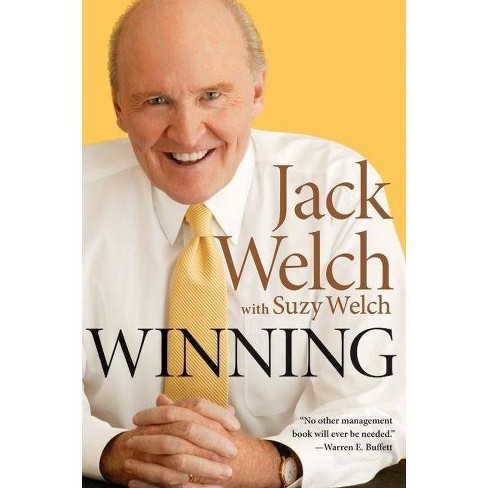
Winning
AFTER I FINISHED my autobiography—a fun but crazily intense grind that I wedged into the corners of my real job at the time—I swore I’d never write another book again. But I guess I did. My excuse, if there is one, is that I didn’t actually come up with the idea for this book. It was given to me. It was a retirement present, if you will, from the tens of thousands of terrific people I have met since I left GE—the energized, curious, gutsy, and ambitious men and women who have loved business enough to ask me every possible question you could imagine. In order to answer them, all I had to do was figure out what I knew, sort it out, codify it, and borrow their stories—and this book was off and running. The questions I’m referring to first started during the promotional tour for my autobiography in late 2001 and through much of 2002, when I was overwhelmed by the emotional attachment people seemed to have to GE. From coast to coast, and in many countries around the world, people told me touching stories about their experiences working for the company, or what happened when their sister, dad, aunt, or grandfather did. But with these stories, I was also surprised to hear how much more people wanted to know about getting business right. Radio call-in guests pressed me to explain GE’s system of differentiation, which separates employees into three performance categories and manages them up or out accordingly. People attending book-signing events wanted to know if I really meant it when I said the head of human resources at every company should be at least as important as the CFO. (I did!) At a visit to the University of Chicago business school, an MBA from India asked me to explain more fully what a really good performance appraisal should sound like. The questions didn’t stop after the book tour. They continued—in airports, restaurants, and elevators. Once a guy swam over to me in the surf off Miami Beach to ask me what I thought about a certain franchise opportunity he was considering. But mainly they’ve come at the 150 or so Q & A sessions I have participated in over the past three years, in cities around the world from New York to Shanghai, from Milan to Mexico City. In these sessions, which have ranged from thirty to five thousand audience members, I sit on a stage with a moderator, usually a business journalist, and I try to answer anything the audience wants to throw at me. And throw they have—questions about everything from coping with Chinese competition, to managing talented but difficult people, to finding the perfect job, to implementing Six Sigma, to hiring the right team, to leading in uncertain times, to surviving mergers and acquisitions, to devising a killer strategy.

